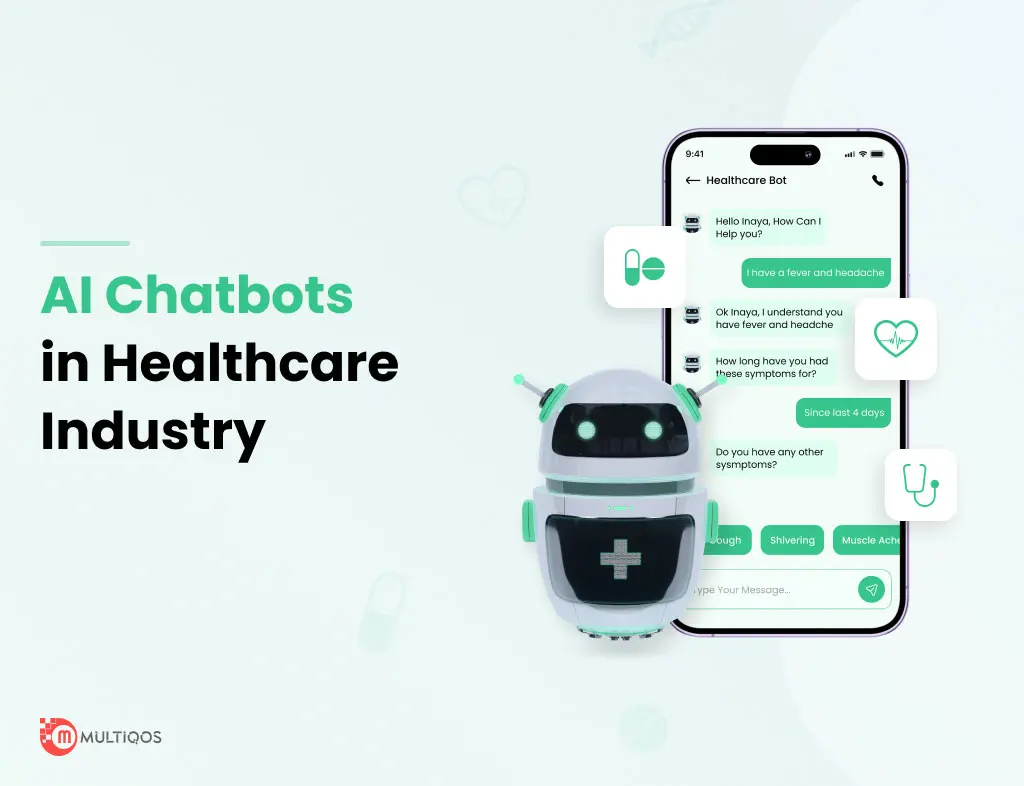AI Chatbots Revolutionizing Patient Health Management
AI chatbots are transforming healthcare by providing 24/7 support and reducing administrative burdens, but challenges in accuracy and equity remain.

The Rise of AI Chatbots in Healthcare
AI chatbots are rapidly transforming how patients interact with the healthcare system, offering 24/7 support, instant symptom checks, appointment scheduling, medication reminders, and even mental health counseling. These tools are now being adopted by hospitals, clinics, insurance companies, and pharmacies, driven by the growing demand for virtual care and the need to reduce administrative burdens on human staff. By 2030, AI-driven chatbots are projected to handle over 2.5 billion patient interactions annually, making them one of the most widely used applications of artificial intelligence in healthcare. While these systems promise greater accessibility and efficiency, their deployment also raises questions about accuracy, equity, privacy, and the appropriate balance between automation and human oversight.
How AI Chatbots Are Helping Patients
Routine Administrative Tasks
AI chatbots excel at handling repetitive, time-consuming tasks that traditionally bog down healthcare staff. They can schedule appointments, answer frequently asked questions about clinic hours or COVID-19 protocols, manage patient check-ins, and assist with insurance claims. This automation not only streamlines operations but also allows human providers to focus on more complex patient needs.
Symptom Checking and Triage
Leading chatbots such as Ada, Babylon, and Buoy use natural language processing to conduct initial symptom assessments, helping patients decide whether they need urgent care, a routine doctor’s visit, or can manage symptoms at home. These tools are increasingly sophisticated, with some studies suggesting they can perform near the level of clinicians for specific tasks. However, their advice is generally intended as a supplement—not a replacement—for professional medical evaluation.
Chronic Disease and Medication Management
For patients with long-term conditions, chatbots like Sensely (Molly) offer regular check-ins, medication reminders, and side effect tracking. This continuous, personalized engagement can improve adherence to treatment plans and help identify potential complications early. In oncology, for example, AI systems that track patient-reported symptoms over time have been shown to reduce emergency department visits and even extend survival in some cases.
Mental Health Support
Mental health chatbots such as Woebot and Wysa provide cognitive behavioral therapy (CBT) exercises, mood tracking, and crisis resources. These tools are particularly valuable in settings where access to mental health professionals is limited. Early evidence suggests that patients engage more with AI agents when the interface is culturally and linguistically tailored, highlighting the importance of inclusive design.
Limitations and Risks
Accuracy and Reliability
While AI chatbots can handle many routine interactions, their ability to diagnose complex or rare conditions remains limited. Errors in symptom interpretation or advice could lead to delayed care or unnecessary anxiety. Ongoing validation through clinical trials and real-world use is essential to ensure these systems are both safe and effective.
Privacy and Security
Healthcare chatbots must comply with strict regulations to protect patient data. Secure, encrypted communication is a baseline requirement, but breaches remain a concern as these tools become more integrated with electronic health records and other sensitive systems.
Equity and Access
Not all patients have equal access to digital health tools. Language barriers, low health literacy, and lack of internet access can exclude vulnerable populations from benefiting fully. Multilingual support and user-friendly design are critical to ensuring these technologies serve everyone.
Ethical and Emotional Considerations
There is a risk that patients may over-rely on chatbots for serious health concerns, delaying necessary human intervention. In mental health, while chatbots can offer support, they are not a substitute for professional care during crises. Responsible deployment requires clear guidelines on when to escalate issues to human providers.
Industry Impact and Future Directions
The healthcare industry is embracing chatbots as a way to reduce costs, improve patient engagement, and extend care beyond traditional settings. Telemedicine platforms, pharmacies, and insurers are integrating these tools to offer round-the-clock support and personalized guidance. As the technology matures, predictive analytics and integration with wearable devices (IoT) could enable even more proactive, preventive care.
However, the future is likely to be hybrid: AI chatbots handling routine tasks and initial triage, while human providers focus on complex diagnoses, treatment decisions, and empathetic care. Continuous feedback from both clinicians and patients will be crucial for refining these systems and building trust.
Context and Implications
The rapid adoption of AI chatbots reflects broader trends in digital health, accelerated by the COVID-19 pandemic and the growing acceptance of virtual care. These tools have the potential to democratize access to health information, reduce disparities, and empower patients to take an active role in managing their health. Yet, their success depends on rigorous oversight, ethical design, and a commitment to equity.
As chatbots become standard in healthcare delivery, stakeholders must prioritize transparency, accountability, and inclusivity. When implemented thoughtfully, AI chatbots can complement human expertise, making healthcare more accessible, efficient, and patient-centered than ever before.



